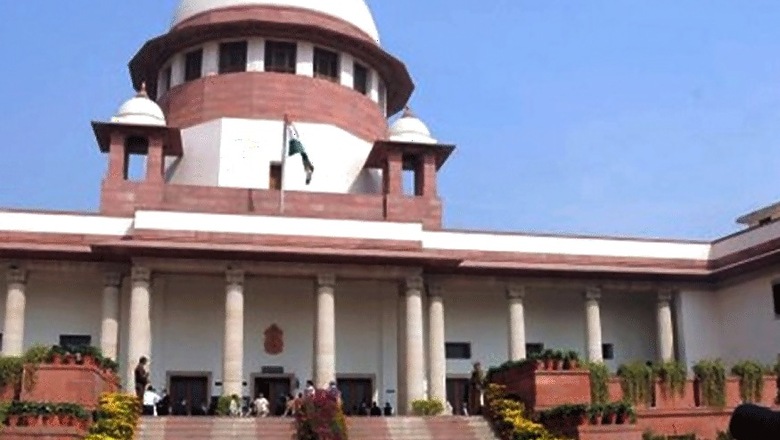
views
The Supreme Court Tuesday said it would hear on July 15 the petitions which have raised the issues relating to Maharashtra law granting reservation to Marathas in education and jobs.
The Socially and Educationally Backward Classes (SEBC) Act, 2018 was enacted to grant reservation to people of Maratha community in Maharashtra in jobs and admissions.
The Bombay High Court, while upholding the law in June last year, had held that 16 per cent reservation was not justifiable and said that quota should not exceed 12 per cent in employment and 13 per cent in admissions.
The pleas against the high court order came up for hearing through video-conferencing on Tuesday before a three-judge bench headed by Justice L Nageswara Rao.
Some of the lawyers appearing in the matter told the bench that physical hearing was required in the case as the issue might not be adjudicated upon properly in virtual hearing through video-conferencing.
The bench observed that physical hearing at present may not be possible and it would consider the aspect of interim relief in the matter next week.
The apex court is presently hearing matter only through video-conferencing amid the COVID-19 pandemic.
"As prayed, list on July 15, 2020," the bench, also comprising Justices Hemant Gupta and S Ravindra Bhat, said.
"In the meanwhile, counsel for the parties are permitted to file a short note of submissions for grant of interim relief. Additional documents, if any, be filed in the meanwhile," the bench said in its order.
The top court had last month sought response from the Maharashtra government on a separate plea of six MBBS doctors, filed through advocate Amit Anand Tiwari, seeking a direction that the state law granting 12 per cent quota to Marathas be not made applicable for admissions in the Post Graduate Medical & Dental Courses for academic year 2020-2021.
On February 5, the apex court had refused to stay the high court order upholding the Maharashtra law granting reservation to Marathas in education and jobs.
Earlier, the top court had in July last year decided to examine the constitutional validity of the Maharashtra law, but refused to stay the high court order upholding the statute with some modifications.
The high court, in its June 27, 2019, order, had said the 50-per cent cap on total reservations imposed by the Supreme Court could be exceeded in exceptional circumstances.
It had also accepted Maharashtra government's argument that the Maratha community was socially and educationally backward and it was duty-bound to take steps for its progress.
The high court had said though the reservation was valid, its quantum -- 16 per cent -- was not justifiable and it should be reduced to 12 per cent and 13 per cent, as recommended by the State Backward Classes Commission.
One of the plea filed in the apex court had claimed that the SEBC Act breached the 50 per cent ceiling on reservation fixed by the top court in its landmark judgment in the Indira Sahwney case, also known as the 'Mandal verdict'.
The framing of the SEBC Act for Marathas was done under "political pressure" and in "full defiance" of the constitutional principles of equality and rule of law, one of the pleas have claimed.
According to the 102nd amendment to the Constitution, reservation can be granted only if a particular community is named in the list prepared by the President.
On November 30, 2018, the Maharashtra legislature had passed a bill granting 16-per cent reservation to Marathas.
The report submitted by the State Backward Classes Commission was based on quantifiable and contemporaneous data and was correct in classifying the Maratha community as socially and educationally backward, the high court had said in its verdict.


















Comments
0 comment